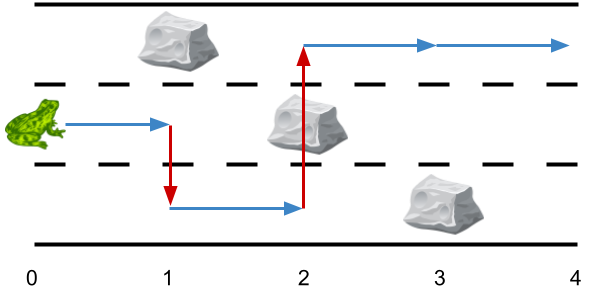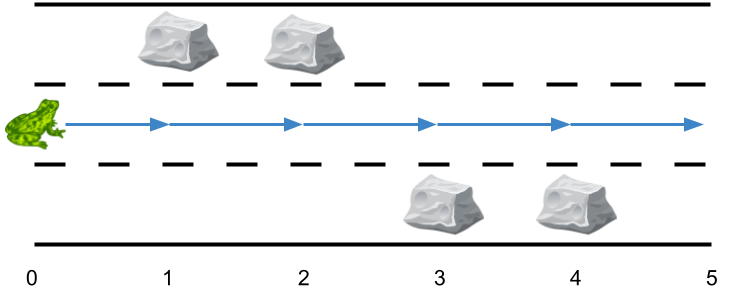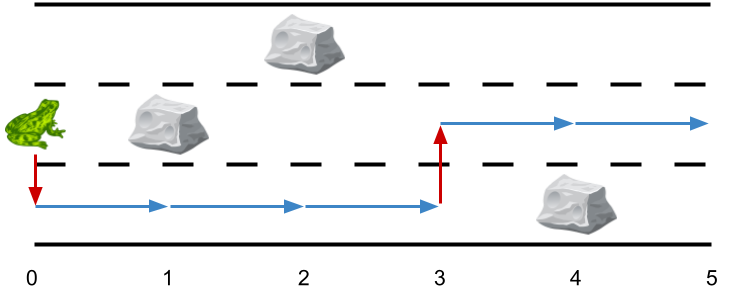There is a 3 lane road of length n that consists of n + 1 points labeled from 0 to n. A frog starts at point 0 in the second lane and wants to jump to point n. However, there could be obstacles along the way.
You are given an array obstacles of length n + 1 where each obstacles[i] (ranging from 0 to 3) describes an obstacle on the lane obstacles[i] at point i. If obstacles[i] == 0, there are no obstacles at point i. There will be at most one obstacle in the 3 lanes at each point.
- For example, if
obstacles[2] == 1, then there is an obstacle on lane 1 at point 2.
The frog can only travel from point i to point i + 1 on the same lane if there is not an obstacle on the lane at point i + 1. To avoid obstacles, the frog can also perform a side jump to jump to another lane (even if they are not adjacent) at the same point if there is no obstacle on the new lane.
- For example, the frog can jump from lane 3 at point 3 to lane 1 at point 3.
Return the minimum number of side jumps the frog needs to reach any lane at point n starting from lane 2 at point 0.
Note: There will be no obstacles on points 0 and n.
Input: obstacles = [0,1,2,3,0] Output: 2 Explanation: The optimal solution is shown by the arrows above. There are 2 side jumps (red arrows). Note that the frog can jump over obstacles only when making side jumps (as shown at point 2).
Input: obstacles = [0,1,1,3,3,0] Output: 0 Explanation: There are no obstacles on lane 2. No side jumps are required.
Input: obstacles = [0,2,1,0,3,0] Output: 2 Explanation: The optimal solution is shown by the arrows above. There are 2 side jumps.
obstacles.length == n + 11 <= n <= 5 * 1050 <= obstacles[i] <= 3obstacles[0] == obstacles[n] == 0
impl Solution {
pub fn min_side_jumps(obstacles: Vec<i32>) -> i32 {
let mut dp0 = [1, 0, 1];
for &obstacle in &obstacles[1..] {
let mut dp1 = dp0;
if obstacle > 0 {
dp1[obstacle as usize - 1] = i32::MAX;
}
let min_sj = *dp1.iter().min().unwrap();
for i in 0..3 {
if obstacle as usize != i + 1 {
dp1[i] = dp1[i].min(min_sj + 1);
}
}
dp0 = dp1;
}
*dp0.iter().min().unwrap()
}
}

